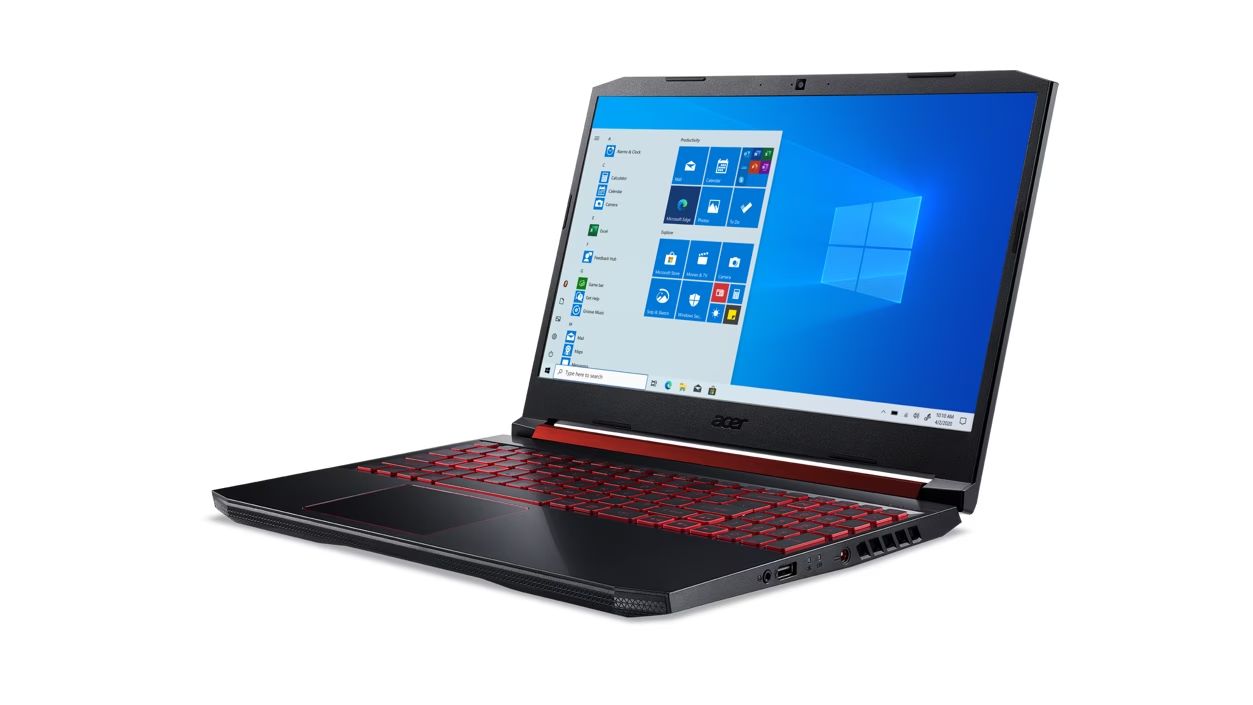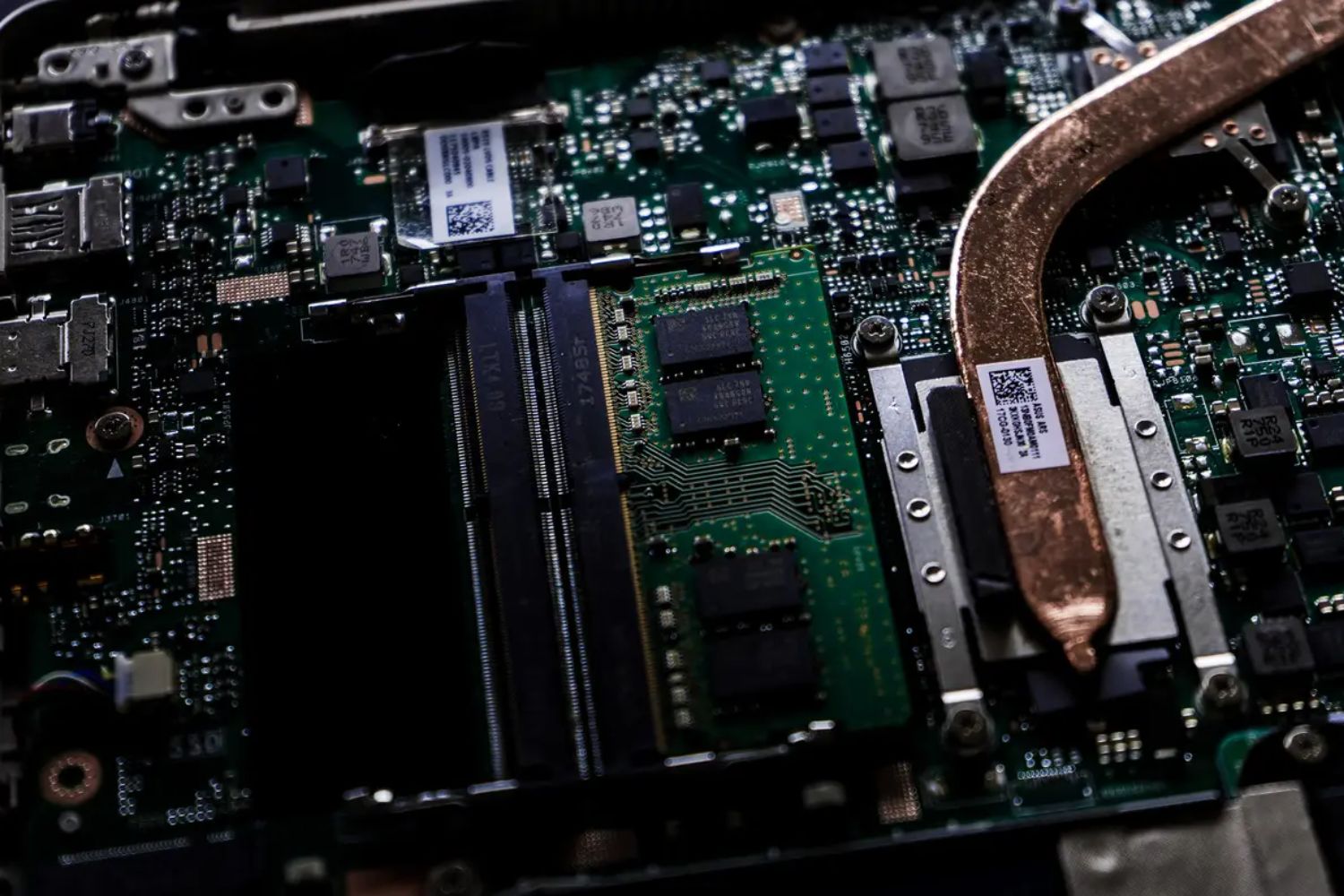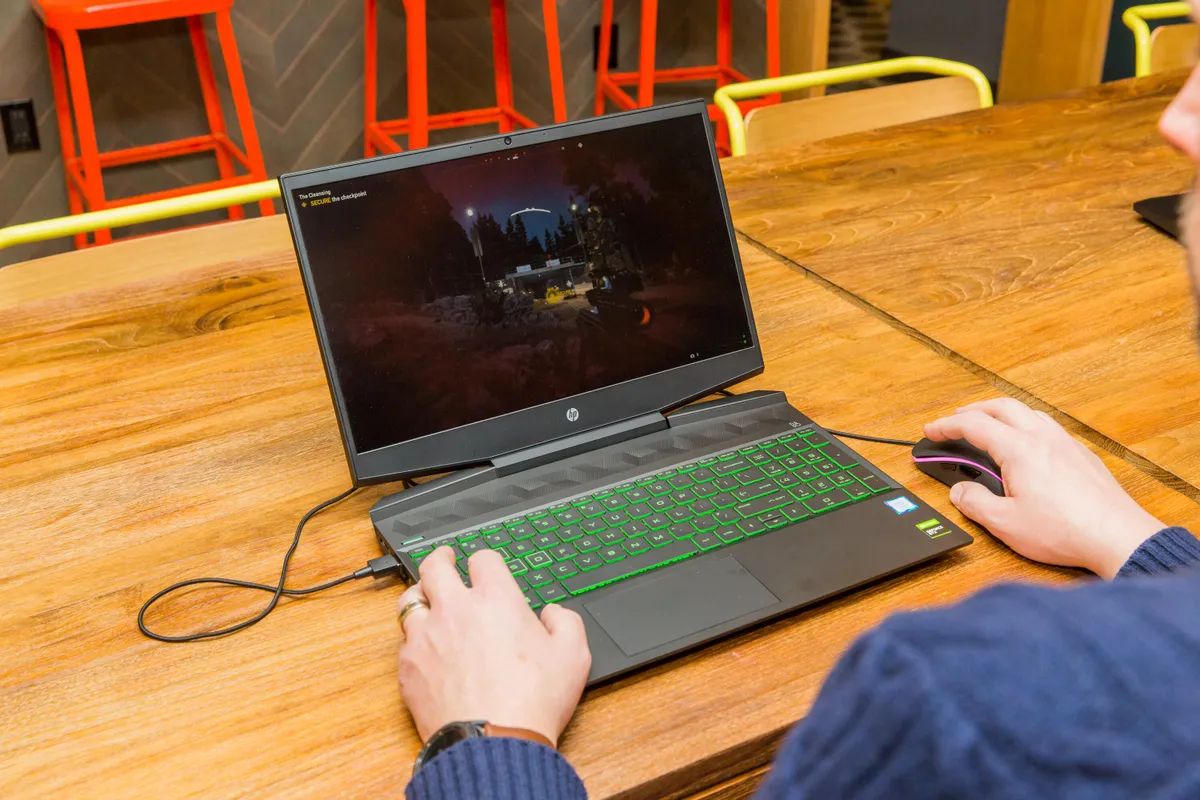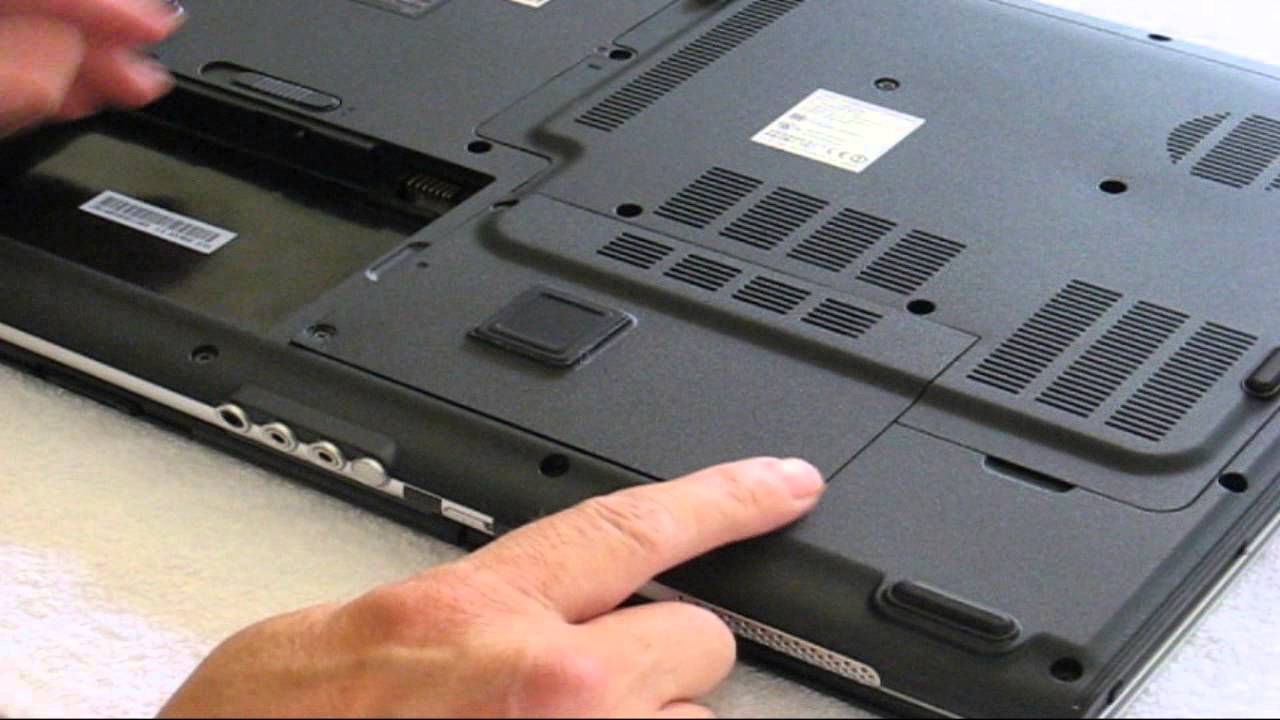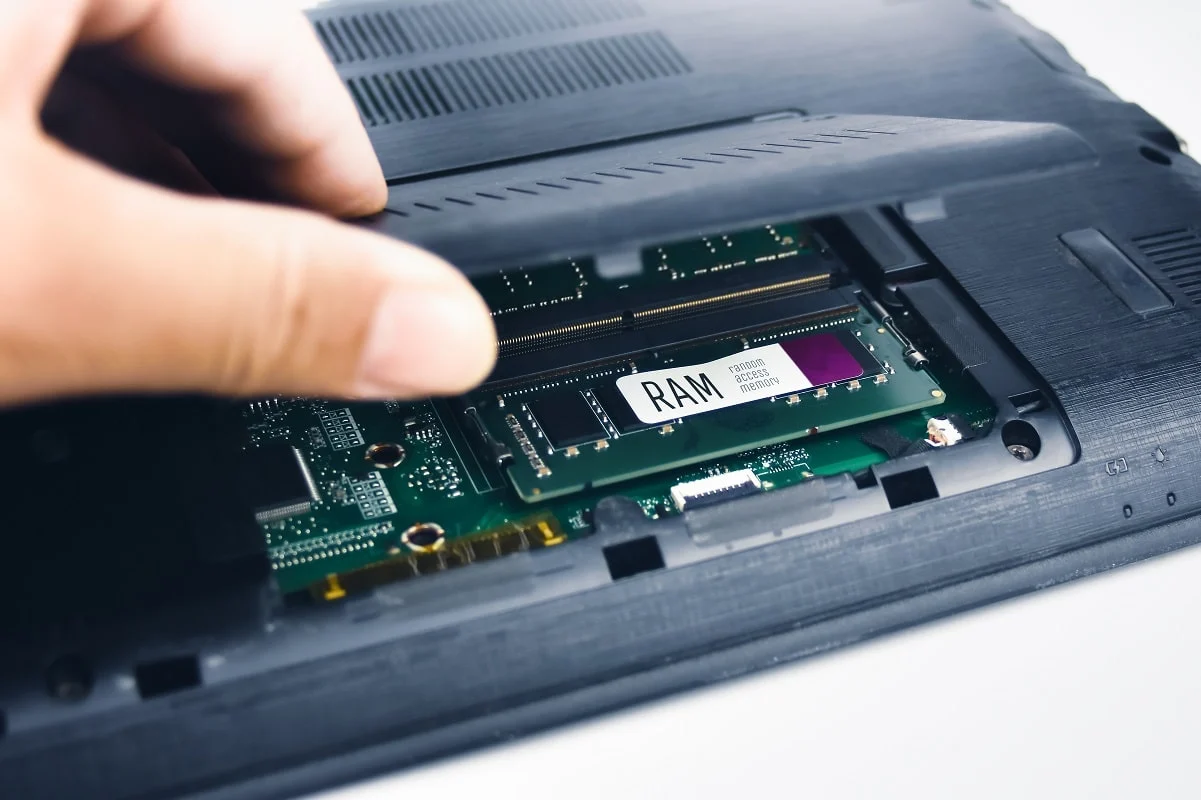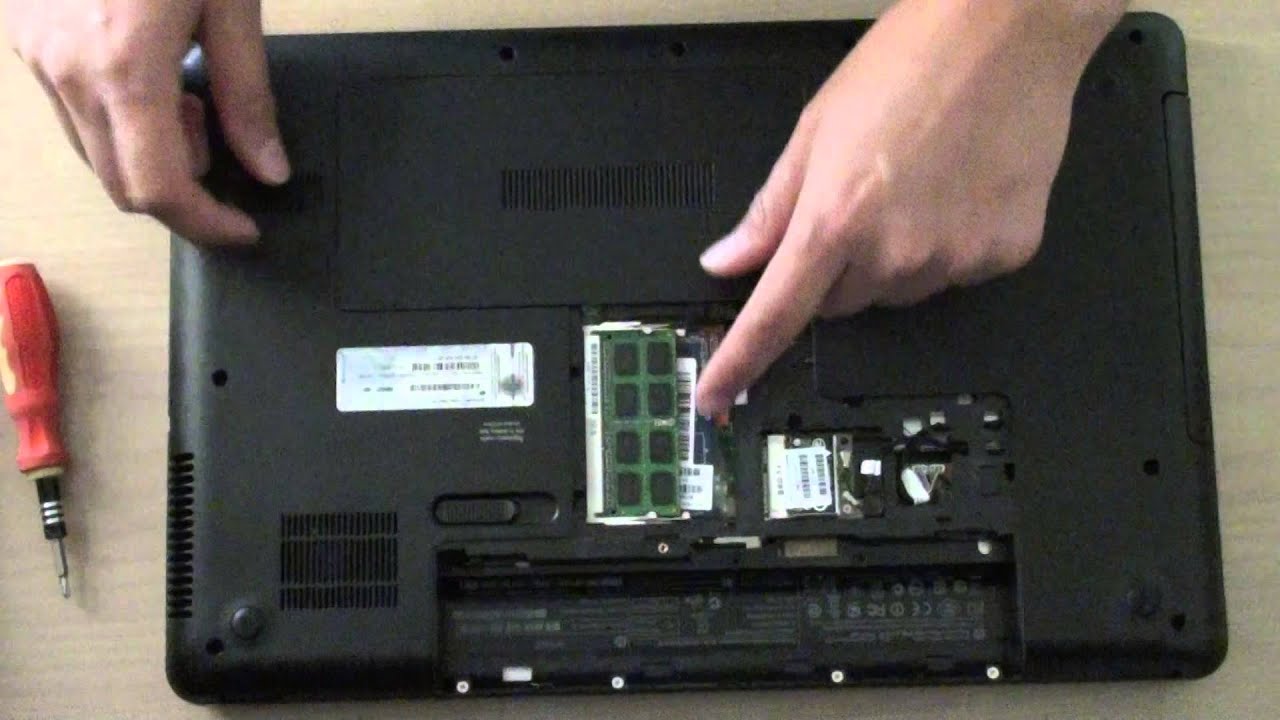Introduction
When it comes to gaming, having the right hardware is crucial for a smooth and immersive experience. A high-performance gaming laptop is a must, but one component that often gets overlooked is the RAM (Random Access Memory). RAM plays a vital role in determining the overall performance and responsiveness of your gaming laptop. It is essential for storing and quickly accessing the data that your games need to run smoothly.
In this article, we will explore the importance of RAM in a gaming laptop and discuss the optimal RAM capacity for an enjoyable gaming experience. We will also consider the minimum and recommended RAM requirements, as well as the high-end gaming needs. Additionally, we will discuss how you can balance the RAM capacity with other essential components of a gaming laptop and explore the options for upgrading the RAM in an existing system.
Whether you are an avid gamer or someone considering getting into the world of gaming, understanding the role of RAM in your laptop is crucial. By the end of this article, you will have a clear understanding of how much RAM capacity you need to maximize the gaming performance of your laptop.
The Importance of RAM in Gaming
RAM plays a crucial role in the overall performance of a gaming laptop. It is responsible for storing the data that is actively being used by the computer. When you launch a game, it loads various assets, such as textures, models, and sound files, into the RAM for quick access. The more RAM your laptop has, the more data it can store, resulting in faster load times and smoother gameplay.
One of the main benefits of having sufficient RAM in your gaming laptop is the reduced loading times. Games with larger and more detailed maps or complex graphics require a significant amount of data to be stored in the RAM. If your laptop doesn’t have enough RAM, it will have to rely on slower storage devices, such as hard drives, which can significantly impact loading times and overall performance.
Furthermore, RAM also plays a crucial role in multitasking. While gaming, you might want to have other applications running in the background, such as a web browser, voice chat software, or streaming applications. Having ample RAM ensures that your laptop can handle these background tasks without impacting the gaming performance. It allows for seamless multitasking, minimizing any lags or stutters during gameplay.
In addition to faster loading times and improved multitasking, having sufficient RAM also helps minimize the occurrence of stuttering or frame drops during gameplay. When a game requires more data than can fit in the available RAM, the system starts using the slower storage devices, resulting in momentary pauses or hiccups known as stuttering. By having enough RAM, you can avoid these interruptions and enjoy a smoother gaming experience with consistent frame rates.
It is worth noting that the importance of RAM can vary depending on the type of games you play. Some games, such as open-world RPGs or multiplayer shooters, require more RAM to store a vast amount of data, while others, such as indie games or older titles, may not demand as much. However, having sufficient RAM ensures that you have the flexibility to play the latest and most demanding games without any performance issues.
Now that we understand the importance of RAM in gaming, let’s explore the minimum and recommended RAM capacity for a gaming laptop to ensure optimal performance.
Minimum RAM Requirement
When it comes to the minimum RAM requirement for gaming, the specific amount can vary depending on several factors, including the game requirements, operating system, and other hardware components of your laptop. However, as a general guideline, most modern games recommend a minimum of 8GB of RAM.
Having at least 8GB of RAM allows for smooth gameplay in most mainstream titles. It provides enough memory for the game to load its assets, render graphics, and handle background processes without significant performance issues. With 8GB of RAM, you can expect decent performance in a wide range of games, including popular titles and AAA releases.
While 8GB is the minimum requirement, it is important to note that gaming laptops with this amount of RAM may struggle with newer and more demanding games. These games often require more memory to accommodate their high-resolution textures, intricate details, and complex physics simulations. As a result, you may experience longer loading times, occasional stutters, or reduced visual quality.
If you are an occasional gamer or mainly play less demanding titles, 8GB of RAM should suffice. However, if you are serious about gaming and want to future-proof your laptop, you may want to consider opting for higher RAM capacity.
It’s important to remember that while RAM is essential for gaming, it is not the only factor that determines gaming performance. Other hardware components, such as the graphics card (GPU), processor (CPU), and storage device, also play significant roles. A well-balanced combination of these components is crucial for achieving optimal performance in games.
In the next section, we will discuss the recommended RAM capacity for a gaming laptop, considering the needs of both mainstream gamers and those who aspire to play the latest AAA titles without any compromises.
Recommended RAM Capacity
For an optimal gaming experience, it is recommended to have a higher RAM capacity than the minimum requirement. Generally, a gaming laptop with 16GB of RAM is considered ideal for most gamers.
With 16GB of RAM, you have ample memory to comfortably run the latest games and handle multitasking without any significant performance bottlenecks. This amount of RAM ensures smoother gameplay, faster load times, and improved overall system responsiveness.
Having 16GB of RAM is particularly beneficial for gamers who enjoy playing resource-intensive titles, such as open-world games, FPS shooters, or games with high-resolution textures and complex physics simulations. These games require more memory to store and process large amounts of data, and having 16GB of RAM allows your laptop to handle these demanding tasks with ease.
Besides gaming, 16GB of RAM also offers advantages when it comes to streaming your gameplay, video editing, or running resource-intensive applications. It allows for smoother multitasking, enabling you to have multiple windows or applications open simultaneously without significant slowdowns.
While 16GB of RAM is the recommended capacity, it’s important to note that some gamers and professionals may benefit from even higher RAM configurations. Enthusiasts who play the most demanding games or engage in heavy multitasking, such as content creators or streamers, might consider upgrading to 32GB or even 64GB of RAM. These higher RAM capacities offer additional headroom for resource-intensive tasks and ensure optimal performance in the most demanding scenarios.
However, it’s important to consider that increasing the RAM capacity beyond the recommended amount may not always result in noticeable improvements in gaming performance, especially if other hardware components are not up to par. It’s essential to maintain a balance between RAM, CPU, GPU, and storage to achieve the best overall performance.
In the next section, we will delve into the high-end gaming requirements and discuss the RAM capacity needed for gamers who want to experience the latest AAA titles at their highest settings.
High-End Gaming Requirements
When it comes to high-end gaming, where you want to experience the latest AAA titles at their highest settings, having a gaming laptop with a higher RAM capacity becomes even more important. For gamers who want to push the boundaries and maximize their gaming experience, a minimum of 32GB of RAM is often recommended.
High-end games often come with advanced graphics, realistic physics simulations, and detailed worlds that require a significant amount of memory to handle. By having 32GB of RAM, your laptop can store large amounts of data, such as high-resolution textures, complex geometry, and multiple in-game assets, without struggling to access and load them in real-time.
Not only does a high RAM capacity provide the necessary memory for smooth gameplay, but it also allows for seamless multitasking while gaming. You can have resource-intensive applications running in the background, such as streaming software, video editing tools, or voice chat programs, without compromising the gaming performance.
Furthermore, with a higher RAM capacity, you have more flexibility when it comes to future-proofing your gaming laptop. As games continue to evolve and become more demanding, having 32GB of RAM ensures that your laptop can handle upcoming releases without any performance bottlenecks.
It’s important to note that while 32GB of RAM is often recommended for high-end gaming, it may not be necessary or cost-effective for all gamers. The specific RAM capacity you need depends on your gaming preferences, the games you play, and your budget. It’s always a good idea to research the recommended system requirements for the games you are interested in playing to make an informed decision about your RAM needs.
Remember that RAM is just one component of a gaming laptop, and other hardware, including the GPU, CPU, and storage devices, also play crucial roles in delivering an exceptional gaming experience. You should ensure that your entire system is well-balanced to get the most out of your high-end gaming laptop.
Now that we understand the RAM requirements for high-end gaming, let’s explore how to balance the RAM capacity with other components when choosing a gaming laptop.
Balancing RAM with Other Components
When it comes to choosing a gaming laptop, it is important to balance the RAM capacity with other essential components to achieve the best overall performance. While RAM is crucial for gaming, it is just one piece of the puzzle, and other hardware components also play significant roles in delivering an optimal gaming experience.
One of the essential components to consider is the graphics card, or GPU. The GPU is responsible for rendering and processing the graphics in games. For smooth and immersive gameplay, it is crucial to have a powerful GPU that can handle the demands of the latest game titles. Investing in a high-performance GPU will allow you to experience games with high-quality visuals and smooth frame rates, especially in graphically demanding games.
Another important component to consider is the processor, or CPU. The CPU handles the calculations and instructions necessary for running games and other applications. A fast and capable CPU will ensure that your gaming laptop can handle the processing requirements of the games, allowing for smoother gameplay and reduced system bottlenecks.
In addition to the GPU and CPU, the storage device also plays a crucial role in gaming performance. While RAM is used for temporary storage during gameplay, the storage device is responsible for storing the game files and other data. An SSD (Solid State Drive) is highly recommended for gaming laptops as it offers faster data transfer speeds and quicker game loading times compared to traditional hard drives.
When balancing RAM with other components, it is essential to ensure that there is no significant bottleneck. For example, having an ample amount of RAM is useless if your CPU or GPU is not powerful enough to fully utilize it. Similarly, investing in a high-performance GPU and processor while neglecting the RAM capacity may result in suboptimal performance, especially in memory-intensive games.
Considering these factors, it is recommended to choose a gaming laptop with a well-rounded combination of RAM, CPU, GPU, and storage. This will ensure that all components work together harmoniously to deliver the best gaming performance possible.
Now that we have discussed how to balance the RAM capacity with other components, let’s explore the options for upgrading the RAM in a gaming laptop.
Upgrading RAM in a Gaming Laptop
If you already own a gaming laptop and are looking to improve its performance, upgrading the RAM can be a cost-effective solution. Upgrading the RAM can provide a significant boost to your laptop’s overall performance and enhance your gaming experience.
Before upgrading the RAM, it is essential to check the maximum supported RAM capacity of your laptop. This information can usually be found in the laptop’s specifications or user manual. Ensure that you purchase RAM modules that are compatible with your laptop’s specifications, including the correct type (DDR3, DDR4, etc.) and speed (MHz).
Upgrading RAM in a gaming laptop is relatively straightforward and can be done by following these steps:
- Shut down your laptop and disconnect the power source.
- Remove the screws or latches that secure the access panel or bottom cover of your laptop.
- Locate the RAM slots. They are typically small rectangular slots with one or two modules already installed.
- Carefully remove the existing RAM modules by pushing the side clips away from the modules. Take note of the orientation of the modules for proper installation later.
- Insert the new RAM modules into the empty slots, aligning the notches on the module with the corresponding slots in the laptop.
- Apply gentle pressure on the module until it clicks into place. Ensure that the side clips lock the module securely.
- Replace the access panel or bottom cover and screw it back in.
- Reconnect the power source, and power on your laptop to ensure that the new RAM is recognized.
Once the RAM upgrade is complete, you should notice a significant improvement in your laptop’s performance, including faster loading times, smoother multitasking, and improved overall responsiveness. The additional RAM will provide more headroom for running resource-intensive games and applications, allowing for a more enjoyable gaming experience.
However, it’s important to note that upgrading the RAM will not magically turn a low-end laptop into a high-performance gaming machine. It should be done in conjunction with considering other hardware components, such as the GPU and CPU, for the best overall gaming experience.
Lastly, if you are uncertain or uncomfortable with performing the RAM upgrade yourself, it is recommended to seek professional assistance to ensure proper installation and compatibility with your laptop.
Now that we have discussed how to upgrade the RAM in a gaming laptop, let’s sum up the key points we have covered in this article.
Conclusion
In conclusion, RAM is a crucial component for a gaming laptop, playing a significant role in determining the overall performance and gaming experience. Having sufficient RAM capacity ensures faster loading times, smoother gameplay, and the ability to handle multitasking while gaming. While the minimum requirement for gaming is typically 8GB of RAM, it is recommended to have at least 16GB to ensure optimal performance in most games.
For gamers who want to push the boundaries and experience the latest AAA titles at their highest settings, a higher RAM capacity of 32GB or more is often recommended. This not only allows for smoother gameplay but also enables seamless multitasking and provides headroom for future releases.
However, it is important to note that RAM should be balanced with other essential components of a gaming laptop, including the GPU, CPU, and storage device. Having a well-rounded combination of these components ensures the best overall performance and a truly immersive gaming experience.
If you already own a gaming laptop, upgrading the RAM can be a cost-effective way to enhance its performance. By following the necessary steps and ensuring compatibility, you can enjoy faster loading times, improved multitasking, and an overall boost in system responsiveness.
Ultimately, the amount of RAM you need depends on your gaming preferences, the specific games you play, and your budget. It is always a good idea to research the recommended system requirements for the games you want to play and consider the RAM needs accordingly.
Whether you are a casual gamer or an enthusiast, understanding the importance of RAM in a gaming laptop is crucial. By optimizing your RAM capacity and balancing it with other hardware components, you can unleash the full gaming potential of your laptop and enjoy a smoother, more immersive gaming experience.









